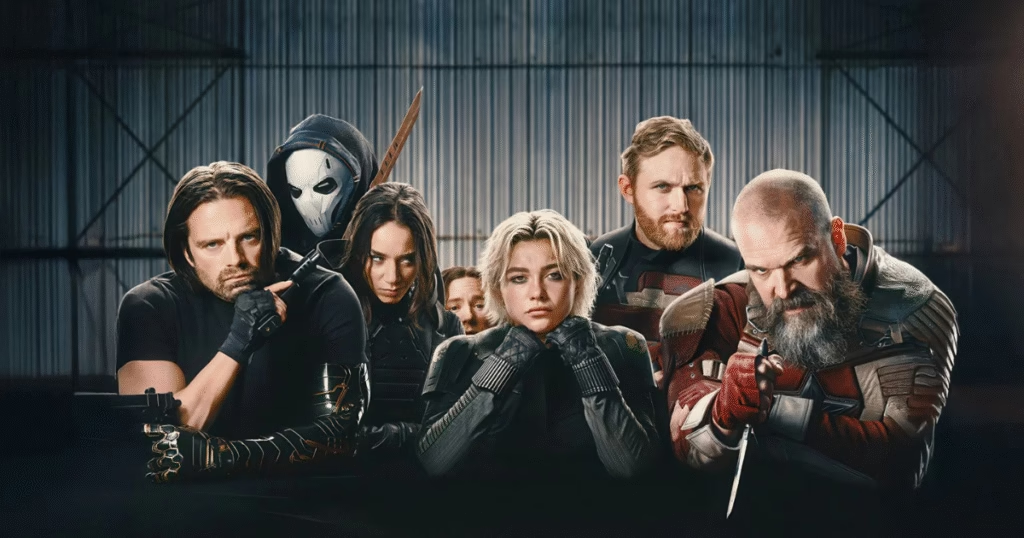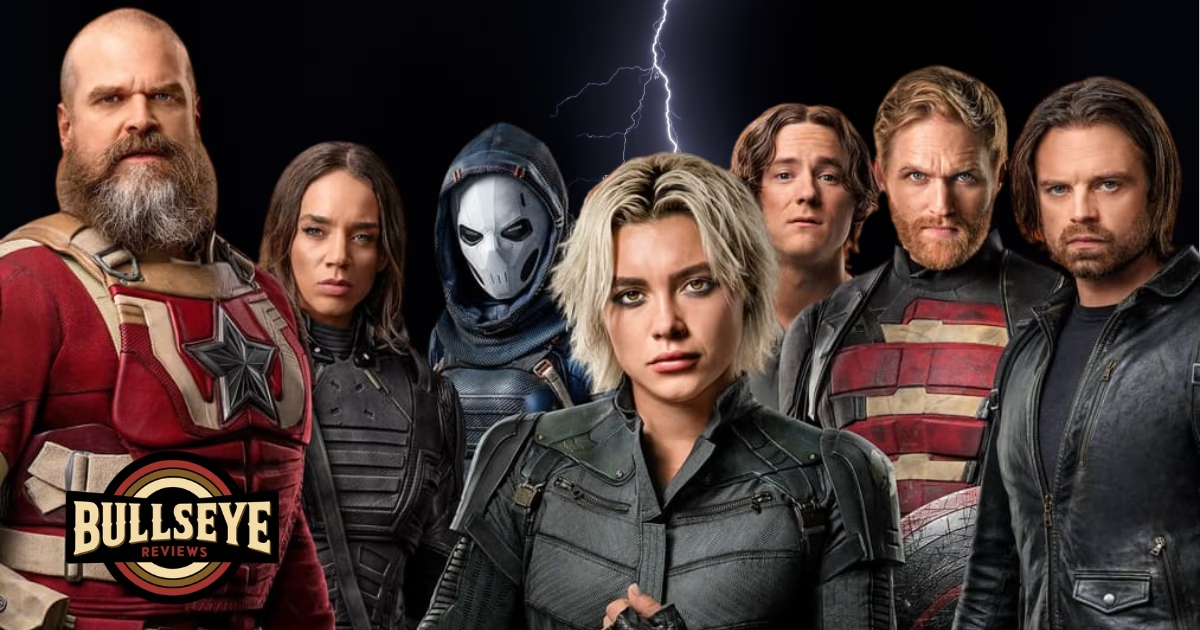Thunderbolts brings together Marvel’s sidelined antiheroes for a mission filled with betrayal, regret, and unexpected camaraderie. Blending action with emotional depth, the film explores themes of trauma, disillusionment, and belonging, with Florence Pugh’s Yelena Belova emerging as the emotional anchor.
The Premise: Antiheroes Against the Odds
Unlike the grand spectacles Marvel is known for, Thunderbolts strips away the gloss to focus on a ragtag crew of outcasts—former assassins, disgraced heroes, and forgotten operatives—pulled into a mission that quickly reveals itself to be a trap. Manipulated by CIA head Valentina Allegra de Fontaine (Julia Louis-Dreyfus), the team discovers they’ve been set up to eliminate each other. What begins as a survival story turns into a reluctant alliance as the group confronts their own demons while questioning their place in a post-Avengers world.
Performances: Florence Pugh Leads with Heart
Florence Pugh once again proves why Yelena Belova has become one of the MCU’s most compelling characters. Her mix of sardonic wit and vulnerability grounds the film, offering a sharp contrast to the cynicism surrounding her. The father-daughter dynamic between Pugh and David Harbour’s Red Guardian provides both humor and tenderness, stealing several scenes.

Sebastian Stan’s Bucky Barnes brings weary gravitas, while Wyatt Russell’s John Walker simmers with bitterness. Hannah John-Kamen’s Ghost remains intentionally elusive, and Olga Kurylenko’s Taskmaster feels underused. But the standout surprise is Lewis Pullman’s Bob, whose fragile psyche and transformation into The Sentry/Void give the story its most haunting edge.
Direction & Style: A Shift in the MCU
Director Jake Schreier takes a restrained approach, focusing less on glossy superhero fireworks and more on atmosphere and vulnerability. The muted cinematography, especially in the “shame room” sequences and shadow-heavy action set pieces, emphasizes the isolation and brokenness of these characters. While the film occasionally struggles to balance its darker themes with Marvel’s trademark humor, the result feels refreshingly grounded compared to recent MCU entries.
Themes: Trauma, Disillusionment, and Connection
At its core, Thunderbolts is less about saving the world and more about saving oneself. Each member of the team grapples with regret and trauma, and Bob’s powers—manifesting as emotional contagion and despair—become a powerful metaphor for depression. Instead of destiny-driven heroism, this is a story about people who have been discarded, questioning whether they can still matter.
The Highs and Lows
- Strengths: Strong performances, especially from Pugh, Harbour, and Pullman; a willingness to slow down and explore vulnerability; striking visuals; and refreshing character dynamics.
- Weaknesses: An uneven script that occasionally drags; underdeveloped arcs for certain characters; and tonal clashes between heavy themes and forced comic relief.
Verdict
Thunderbolts may not reinvent the MCU, but it offers something rare: a superhero film that dares to sit with discomfort, exploring what happens when broken people are forced to work together. It’s messy and uneven, but it lingers in ways many Marvel films don’t. With its blend of slick action and surprising emotional depth, it feels like a small but meaningful step forward.
Bullseye Rating:★★★½ (3.5/5 stars)
Thunderbolts is currently streaming on JioHotstar.
Thunderbolts is a gritty, emotionally layered Marvel outing that shines through its ensemble cast and darker themes, even if it stumbles in pacing and tonal balance.

